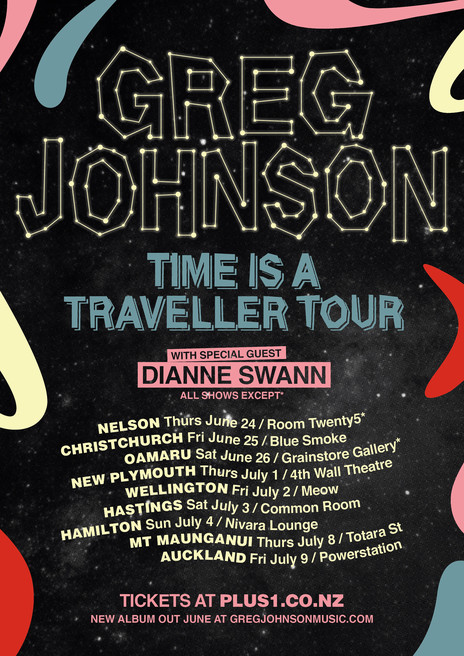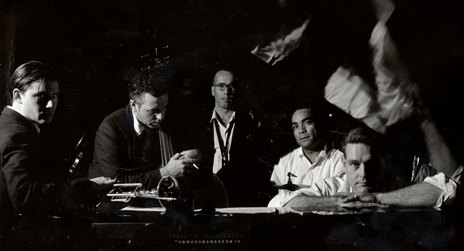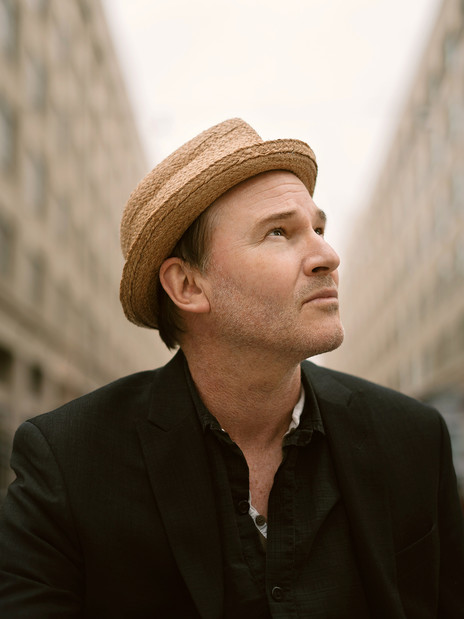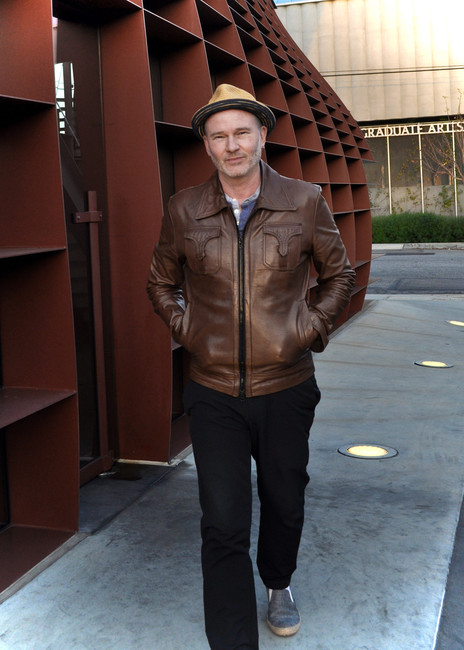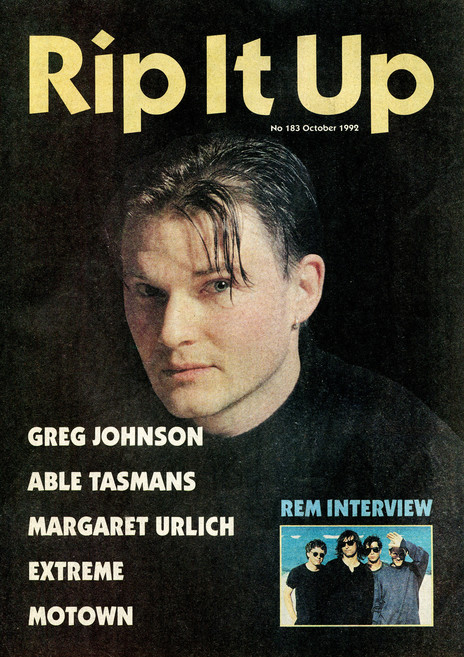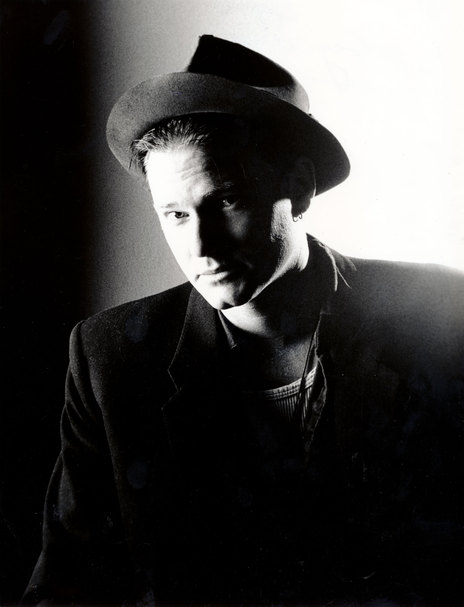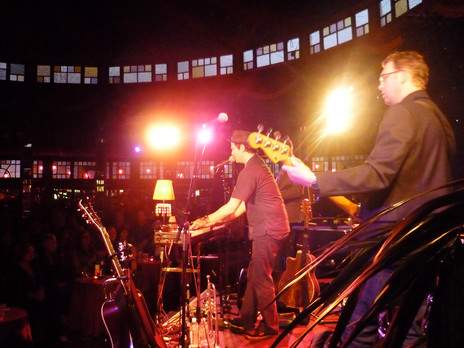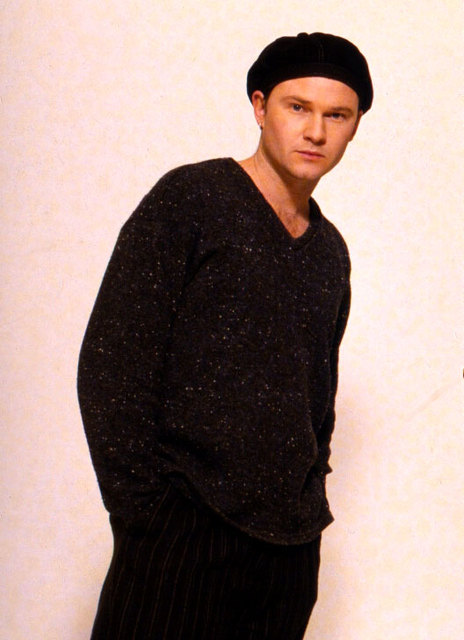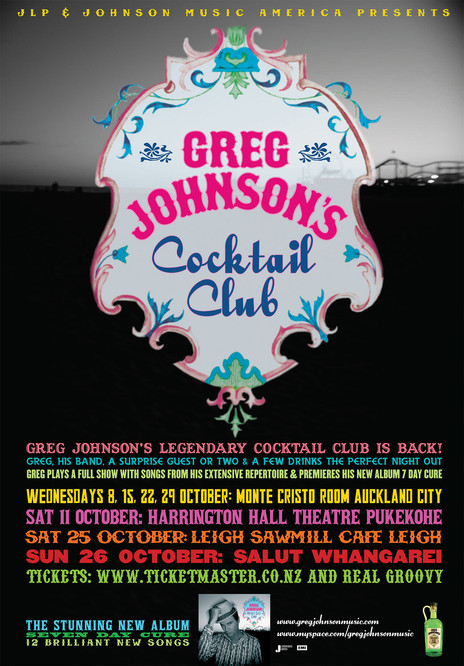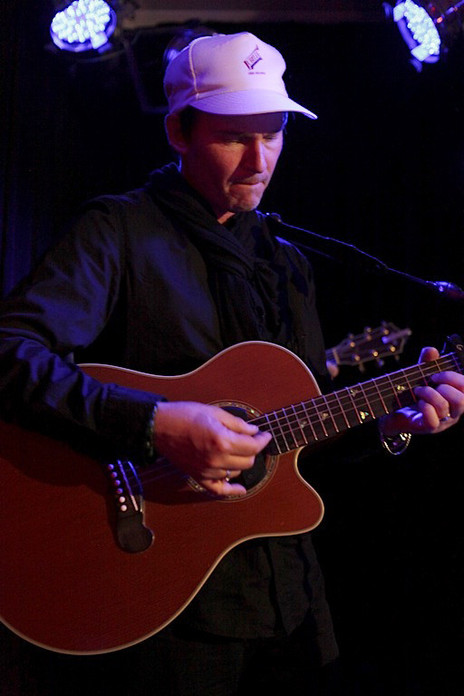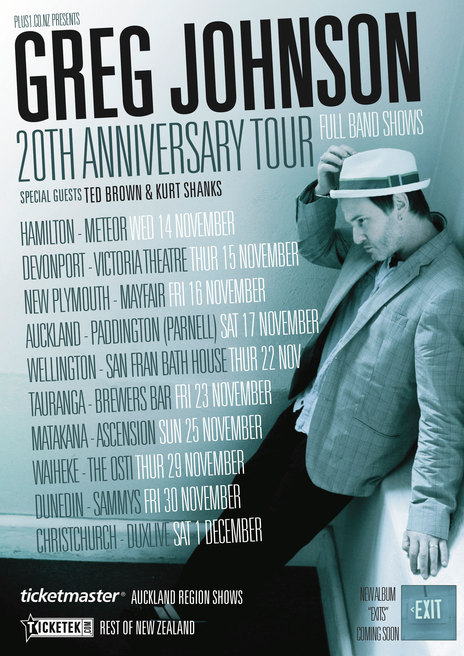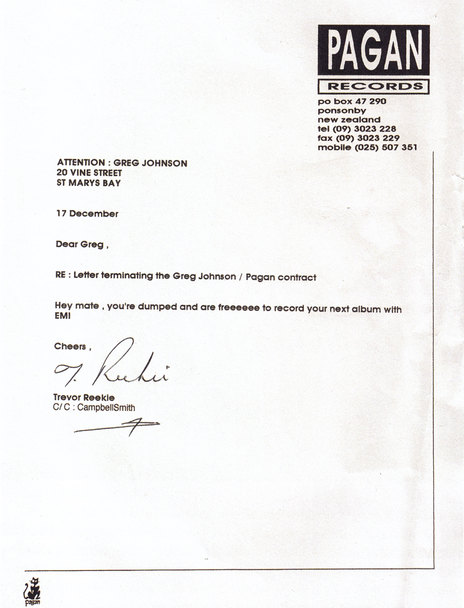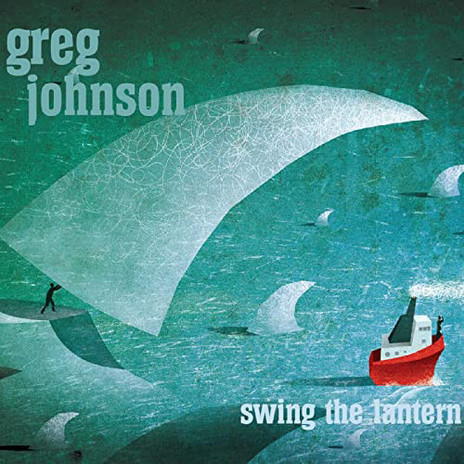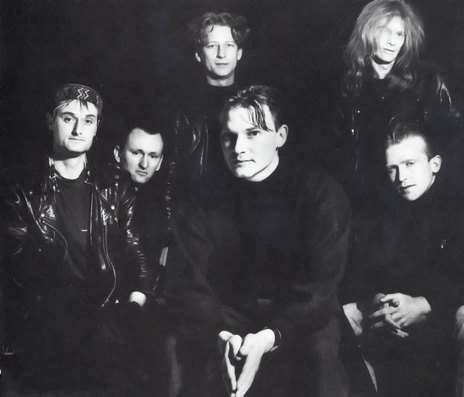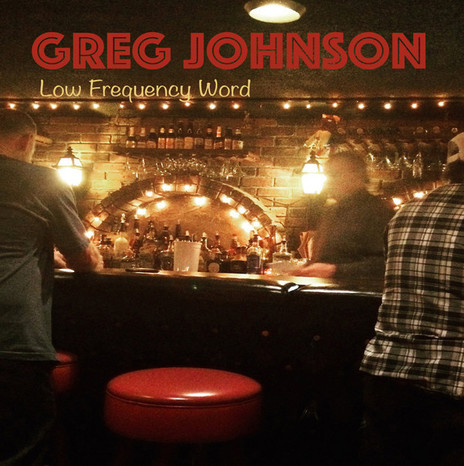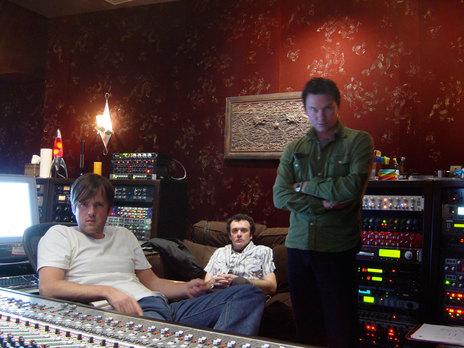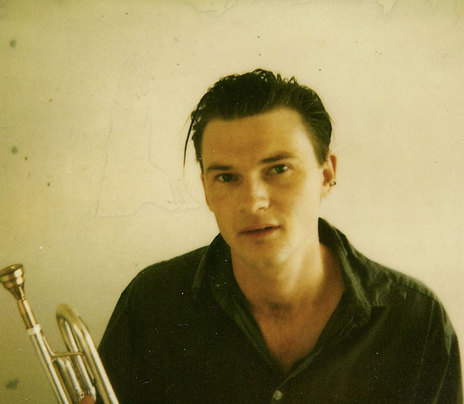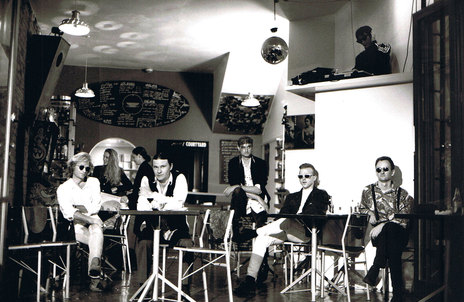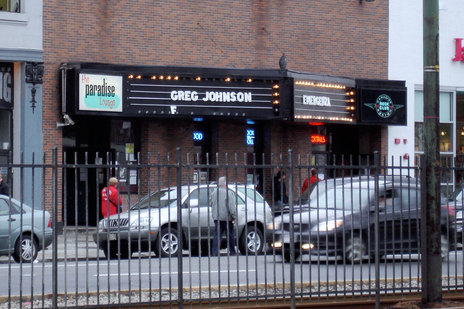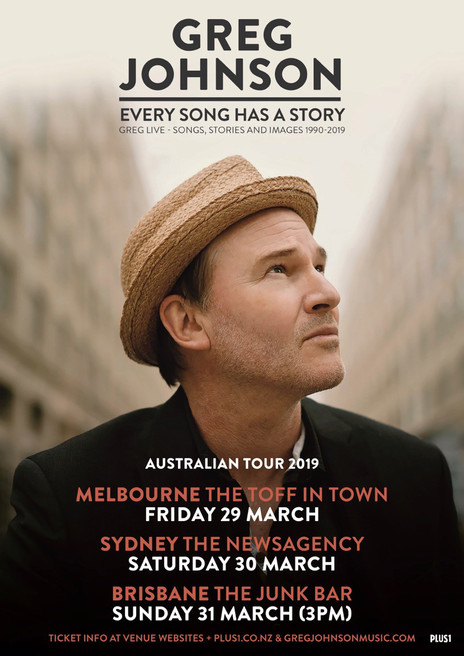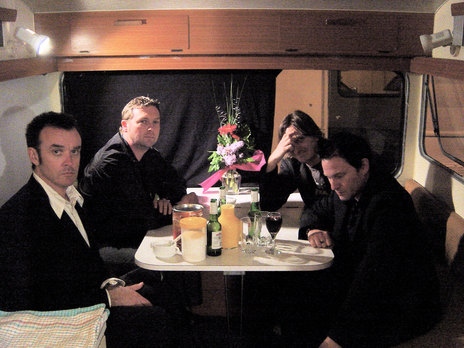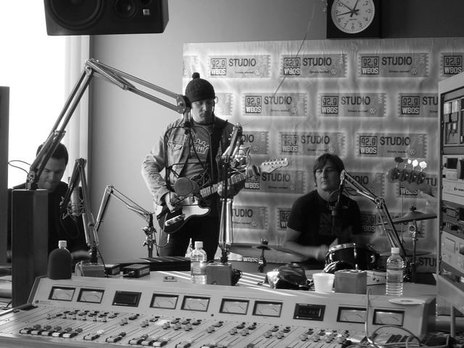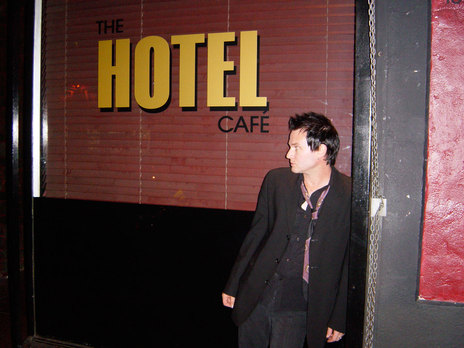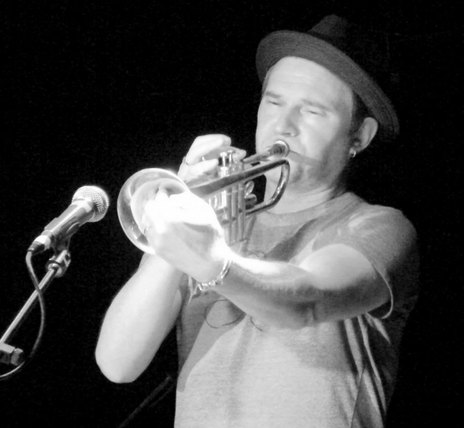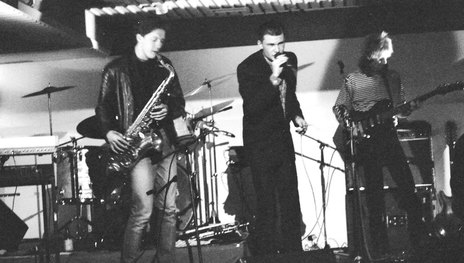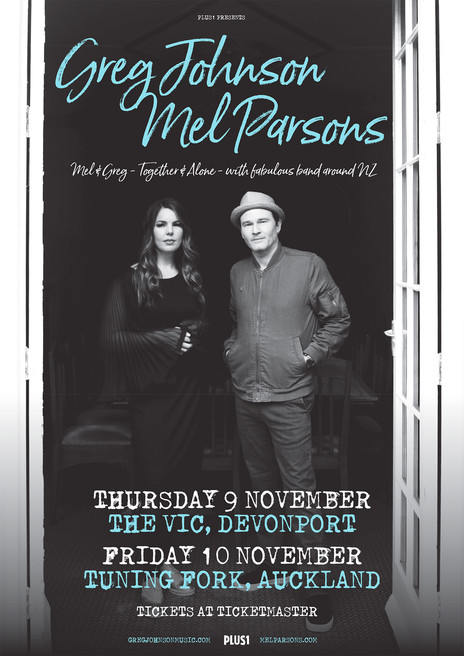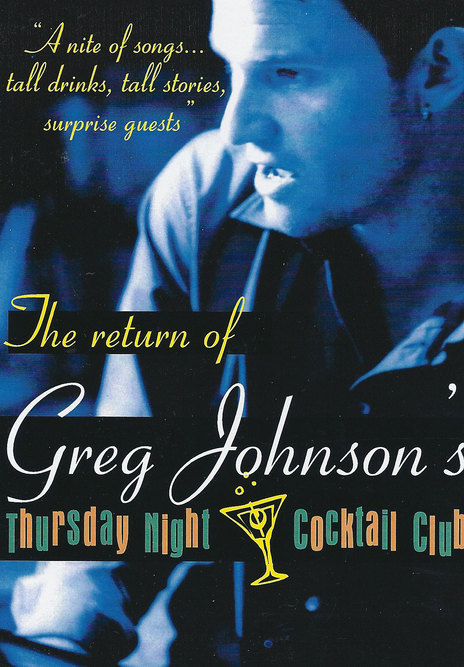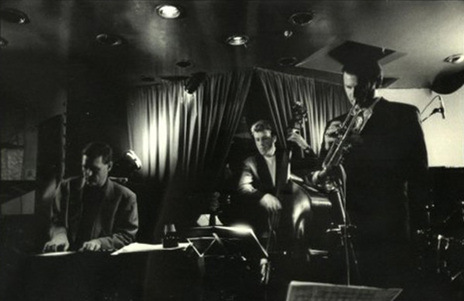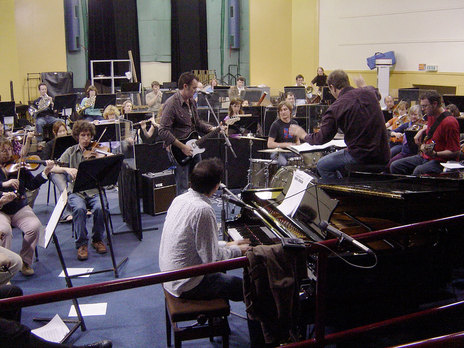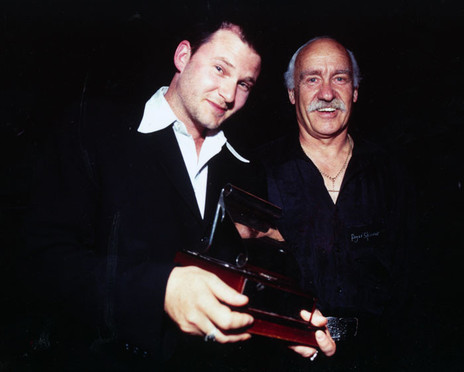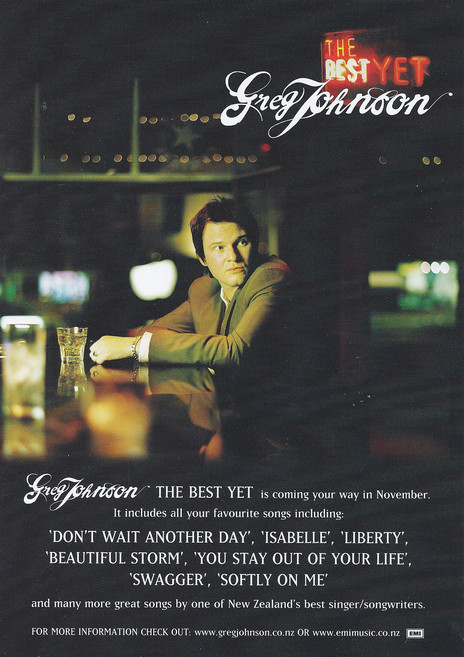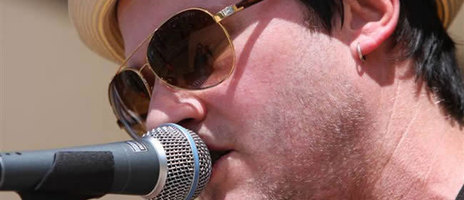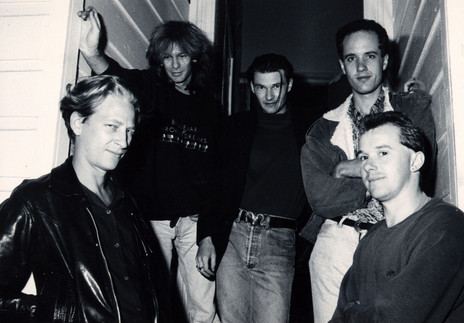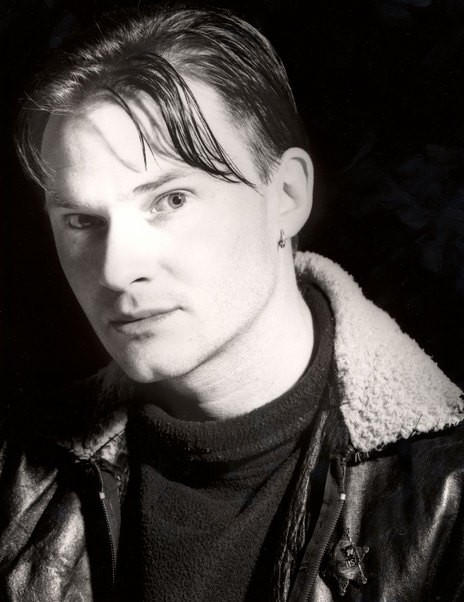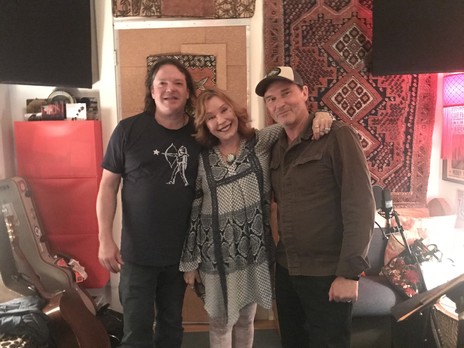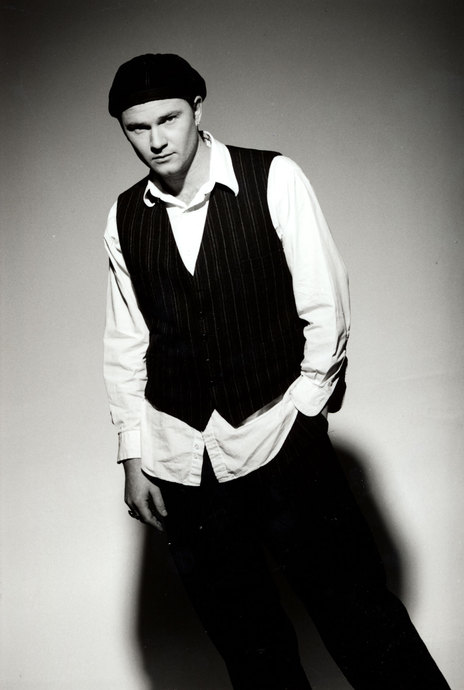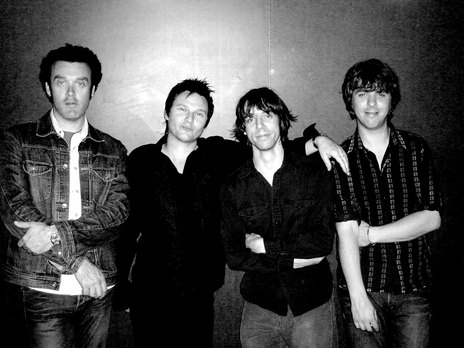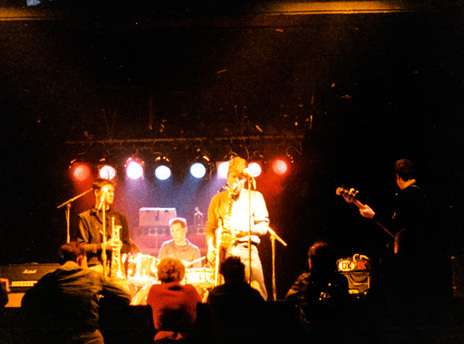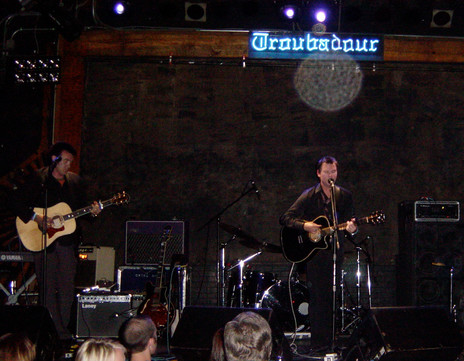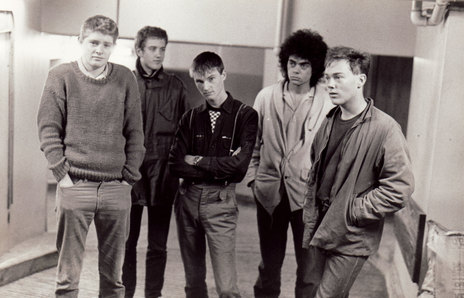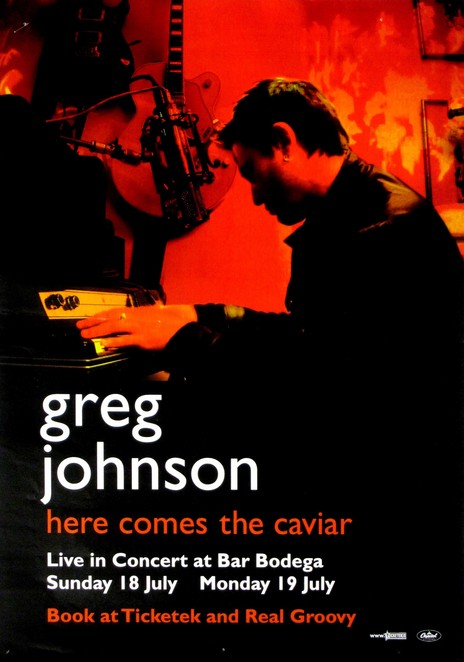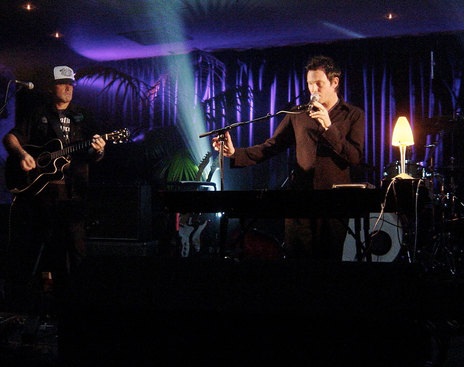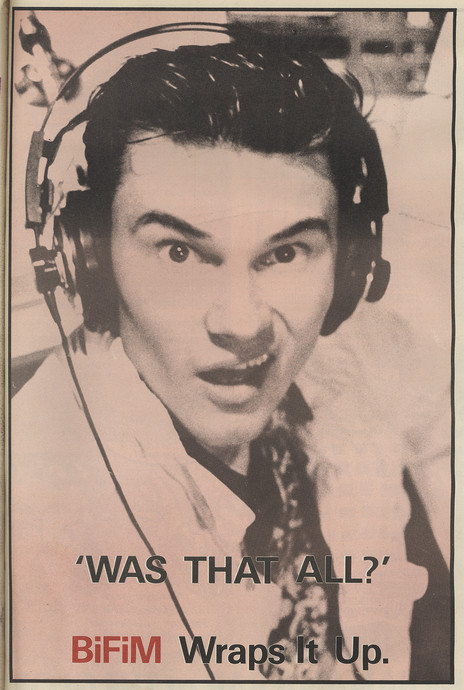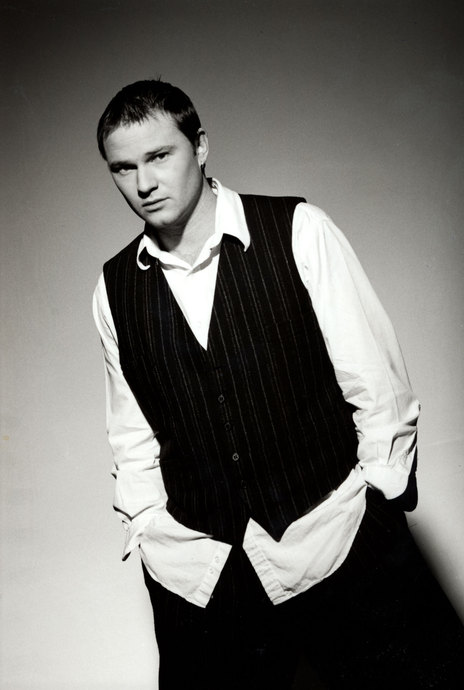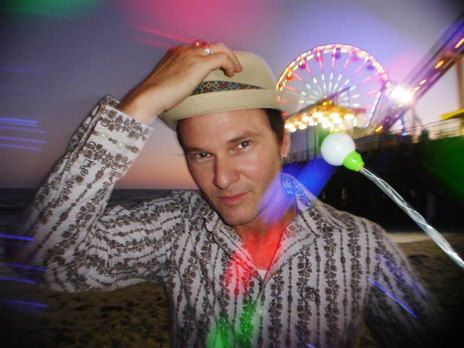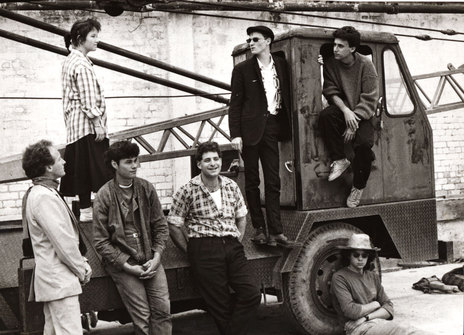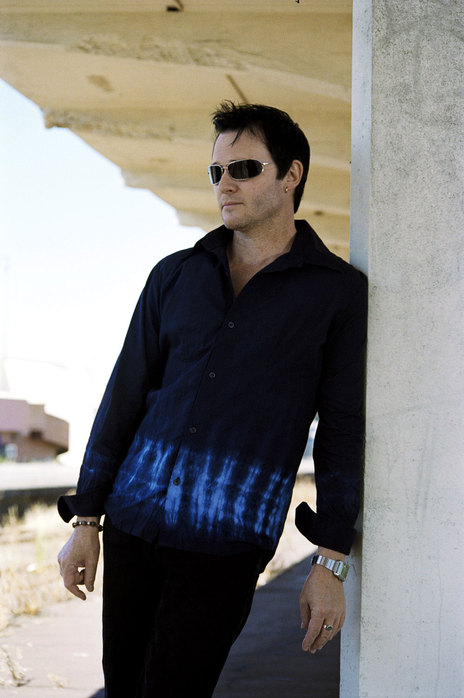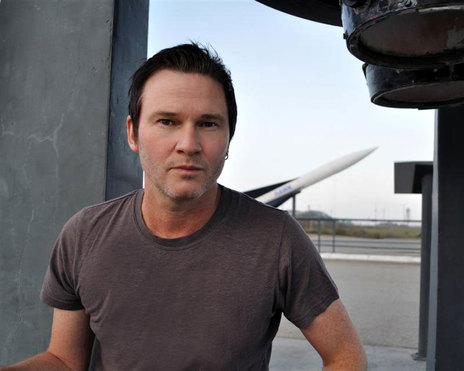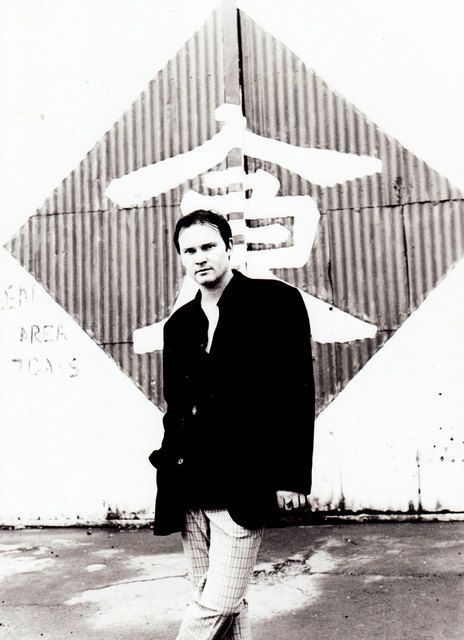Two people who recognised Johnson’s talent were Trevor Reekie and Tom Ludvigson. Reekie’s Pagan Records released an EP by This Boy Rob (1987), a collaborative effort with Tom Fraser. Two years later Ludvigson invited Johnson to join Bluespeak, an acoustic jazz quartet; on vocals and playing trumpet. Johnson, in Chet Baker mode, performed and recording four albums with Bluespeak through to 1998, by which stage his “pop/rock” career had taken off. (“Bluespeak did feature some originals, both mine and Tom’s, but mostly it was drinking songs by people like Slim Gaillard and Mose Allison.”)
Johnson was taken aback when ‘Isabelle’ was a hit single, reaching No.7 in the charts.
The Reekie connection was to take Johnson’s career to another level. Reekie was a member of Nigel Russell’s electronic band Car Crash Set, and in 1988 Reekie (guitar), Russell (keyboards), Johnson and his mate Joost Langeveld (bass) became the Greg Johnson Set; a drum machine (aka Car Crash Set) kept the beat. This line-up recorded the low-budget album The Watertable (1991) for Pagan Records.
In mid-1992 Johnson was taken aback when ‘Isabelle’ became a bona fide hit single, peaking at No.7 in the charts. “‘Isabelle’ took us by surprise,” Johnson says, “we weren’t really a radio band so we had this hit single but we had no money to take advantage with an album, so it was a lost opportunity.”
The next album, Everyday Distortions, finally surfaced the following year, by which stage the Set had been joined by a second guitarist, Chris McKelvie (son of country-rock guitarist Red McKelvie). Over the next two years there were regular line-up changes; among those who passed were guitarists Johnny Fleury and Boh Runga, bassists Clinton Brown and Mark Hughes, and drummer Andrew Maclaren.
The third album, and the first credited to just Greg Johnson, rather than the Greg Johnson Set, was 1995’s Vine Street Stories, produced by Nigel Stone. Crafted over a 12-month period, it was mostly recorded at Johnson’s Vine Street home in St Mary’s Bay, plus recorded in studios in Auckland and Wellington. Finance to complete the project was a problem as Pagan Records’ (and band member) Trevor Reekie juggled budgets, but irritation with delays was offset by the album’s reception – No.8 in the NZ album chart in September 1995. The same year Johnson collected the award for best male vocalist at the NZ Music Awards.
Vine Street Stories was completed with financial support from Pagan distributors EMI and for the next album, 1997’s Chinese Whispers, he was signed to the multi-national. The album yielded a high point in Johnson’s career – he won the APRA Silver Scroll for ‘Liberty’.
In an attempt to crack a larger market, in 1997 Johnson and band toured Britain and Ireland to promote Chinese Whispers. The experience was cool enough, fun even, but it was Los Angeles where Johnson would eventually resettle. Despite, at best, just moderate sales, Greg Johnson has released a dozen albums to date, plus two compilations. He’s a master craftsman, one of New Zealand’s most melodic songsmiths, but genuine mainstream success still eludes him; Vine Street Stories remains his best-selling album and ‘Isabelle’ his only Top 10 entry. He remains philosophical: “I haven’t changed what I do, I just do what I do. I still think there’s still some good songs left in me.”
Following 2000’s Sea Breeze Motel (produced by Ian Morris), there was interest from the US. In February 2002, with collaborator and guitarist Ted Brown and an enthusiastic manager, Michelle Bakker, Johnson made the big move. He has been a LA resident since.
‘LIBERTY’, A SONG OFF THE ‘VINE STREET STORIES’ ALBUM, WON JOHNSON THE APRA SILVER SCROLL.
Looking back on the early years in the US, Johnson says, “Well our American record company Immergent put up a lot of money and wanted us over there and you just have to take that sort of opportunity. It didn’t really turn out the way we hoped. Life is what happens while you’re making plans, as they say. But those first few years were pretty exciting, touring around, doing a lot of shows.“
A single, ‘Save Yourself’, threatened to take off (playlisted on over 60 radio stations – small stuff in the USA) and a zig-zag tour saw some genuine high points, notably a sell-out concert at Boston’s prestigious Paradise Lounge. There were some positive write-ups, a smattering of television appearances, and Johnson met with Aaron Neville after Neville showed interest in recording Greg’s song ‘If You Think It’s Over’ (it didn’t happen). There were mentions in Billboard and other trade magazines, the occasional positive review.
As it turned out, Immergent Records went belly up and a second (UK) label also went under. Both labels tried recouping some of their outlay through legal avenues, and lost, but none of these setbacks affected the release of the album Johnson had been working on, Here Comes The Caviar (2004).
It took four years before Johnson concluded what he’d known all along: the American music industry is corrupt, everyone with their hands out before you’d even made a dollar yourself. “I quit touring in 2007,” he says, “it was just too expensive. And my labels kept collapsing! It’s a young man’s game and I can’t go out sleeping on floors and that, and stay sane. Or stay married.”
Johnson married American stuntwoman Kelli Barksdale (“she makes more money than me”) in 2007, and they have a daughter, Ruby (born 2012). He’s very much settled into an American life, has his small Birdwood Studio in his Santa Monica home, recording his own material and producing others. He has long collaborated with Ted Brown (who has also remained in the US) and he also works with a string of other artists, including Lisa Crawley, Simon Perry, Mozella and others.
The New Zealand songwriter may not have realised the American Dream but he gets by. He’s made contacts and has written for TV commercials and had songs placed on television and on the movies (‘I Got Opinions’ featured on the Dustin Hoffman/ Emma Thompson vehicle Last Chance Harvey, 2008). There has been an album every couple of years and his regular New Zealand tours are well-attended by the faithful.
“Yeah, I come back once or twice a year,” he says, “to keep the New Zealand thing going without getting over-exposed, which works quite well. I get to see New Zealand almost like an outsider. American friends ask me why the hell I live in LA and I have to wonder myself at times. But it’s exciting and I’ve always liked the city and you just never know what’s going to happen in the Big Smoke.”
– John Dix, 2014
Tilt Your Interior: Johnson since 2015
Greg Johnson’s next album, Swing the Lantern, was released in May 2015, having been crowd-funded by fans and recorded in the San Fernando Valley.
By then, Johnson had found a balance and routine that suited him well: making music in his adopted home of LA, touring in New Zealand, and taking time off to care for his daughter Ruby, when his stunt-performer wife Kelli is working. Playing with his regular collaborators – Ted Brown on backing vocals, Wayne Bell on drums and Mark Hughes on bass, Johnson was also joined by Alex Troup on guitars. “The boys came up to LA,” Johnson remembers, while speaking to AudioCulture in March 2021. “I put them in this really horrible Airbnb in Van Nuys, which made them want to go in to the studio a lot.”
Johnson embraces the collaboration that comes from having the band in the same room.
Produced by Bell, they recorded at Stagg Street Studios, a replica of Michael Jackson’s personal studio, built by the same team. Johnson embraces the collaboration that comes from having the band in the same room. “I’ve never been one to tell a bass player what to do,” he told AudioCulture. “The whole point of getting a bass player in, is that they tell you what to do.”
The new work was toured in New Zealand that year, supported by fellow ex-pat Lisa Crawley. Reviewing for NZ Musician in May 2015, Ania Glowacz complimented Swing the Lantern as “the most natural sounding album I’ve heard in eons”.
“Johnson has come up with another beautiful, new but familiar, set of stories that are instantly likeable and engaging,” wrote Glowacz. She also praised Johnson’s “distinct voice” on the album, as did Colin Morris for Stuff, noting “with age, Johnson’s voice displays darker shading and just occasionally he tips in to Guy Garvey’s (Elbow) gravelly tones, though his compositions still have a David Gray-meets-Bryan Adams feel.”
For Johnson, the most memorable part of any project is the recording process. “I remember the recording sessions more than anything. I was sitting outside drinking Marcellos, these dark Mexican beers, on plastic chairs … that album, I loved doing it.”
The following year, Johnson’s UK manager Steve Cadman suggested a live album, and Here Comes the Caviar was the natural pick to record again in concert. Its original release was a commercial success and it is well played, both on radio and in Johnson’s live shows. Johnson was joined by Brown, Bell and Hughes for the project, and three dates were played in Christchurch, Auckland and Dunedin. “We’ll play it in order from start to end,” Johnson noted in the tour announcement, “only stopping for a slug of vino and perhaps a touch of reminiscing with Ted, before ending the night with some more crowd favourites.”
The experience must have been enjoyable for Johnson, as he told AudioCulture he is considering a live album for Vine Street Studios. However, there is the roadblock – his hatred of rehearsals. “It’s always been one of my biggest problems, I can’t stand it. I just can’t get enthusiastic about it.”
For him, something happens when he is in front of a live audience, that he just can’t reproduce in a rehearsal room. “When you’re in front of the crowd, you have to front up … I’m a live player, I always have been, that’s the thrill for me. The audience is right there and if you can’t win them over, you’re in trouble.”
2017 shaped up to be a big year for Johnson. He toured New Zealand with Mel Parsons, and released a four-track, self-produced EP, Low Frequency Word. The new songs were inspired by a trip to Memphis, Tennessee, and nearby Clarksdale, Mississippi, where folklore has it blues musician Robert Johnson made a deal with the devil at the Clarksdale Crossroads. Johnson passed through the area while visiting his wife’s family, and the experience stuck with him.
“It’s a very depressed area” he told AudioCulture in 2021. “The town is only being kept alive by the blues museum and bar.” These breaks in routine often inspire songwriting in him, it’s “... something that takes you out of your normal space and maybe gets you thinking. And I’ve always used drugs for that as well … the weed in California – I’ve always been a smoker – it can really shift the mood and make one thing seem completely different to how it seemed 10 minutes earlier … booze doesn’t work so well; you tend to get a bit overexcited and self-congratulatory.”
“If you got upset about all the rejections, you’re in the wrong business.”
Speaking of breaks from routine, the 2020-21 coronavirus was a massive disruption for Johnson. While pleased he managed to tour New Zealand and Australia the year before – accompanied by Ben King on guitar – but was disappointed to cancel his 2020 UK shows, as they were the first in a long time. Johnson also felt the loss of commercial composition jobs, which, although infrequent, are a great cash injection when available.
That being said, this isn’t Johnson’s first rodeo, and he knows how to shoulder career disappointment. “You can’t let that shit bother you. If you got upset about all the rejections, you’re in the wrong business.” He swiftly pivoted and began work on what would become Tilt Your Interior, a digital box set that includes his entire discography of studio albums. It also features over 100 unreleased tracks (including demos), and a new album – currently being released track by track – also called Tilt Your Interior. Johnson crowd-funded the project, with a model that allowed contributors perks for the different levels of support. The campaign was very successful.
As for the new Tilt Your Interior album, there was plenty of inspiration. “I didn’t try to desperately write too many songs in the interim between Swing and Tilt, but suddenly about a year ago I started writing. There were quite a few intense experiences in the previous few years, on top of Covid.”
Throughout 2020, Johnson contended with not only the international lockdown, but his mother’s passing and a health scare of his own. “You reach a point where you’ve got to say something, or you become so uncomfortable that something’s got to give, and usually that something is music, thankfully.”
Due to the limitations on travel, Johnson describes the new songs as “mostly being done by proxy” – a different style to the in-person sessions for Swing the Lantern. “[Usually] I try to mix it up, get different people in and bounce other people’s ideas as well, that’s the fun part – the interaction.”
But he isn’t fussy, he’ll make music however he needs to. “For me, it’s about the songs. I don’t really care what the delivery is. It’s like drinking. I don’t care if it’s vodka or whiskey or a glass of wine … it doesn’t matter what the flavour is, am I going to get a kick out of it?”
Johnson describes the new songs as a “broader view of life”. He likes that it’s the kind of album he and his wife can enjoy themselves. “In terms of appealing to us, what we’re listening to, what we like ourselves, it’s definitely the case … my wife, who is a big fan, but also very critical – which is great, that’s why we’re married – she says, ‘this is your best work.’”
new technology is like “punk rock … anyone can make music now, that’s how it used to be.”
Johnson is flying to New Zealand in June 2021 for his next tour, and will have all the new tracks recorded before travel – in part, so that he can sell CDs at his shows, a tradition of his. Although his love of CDs might not suggest it, he has always been a fan of technological advancements in the industry, especially as a tool for equalisation. “It’s punk rock … anyone can make music now, that’s how it used to be.” And as for Spotify? “If you can’t beat ’em, join ’em.”
The process of compiling his discography for the Tilt Your Interior catalogue has naturally been a self-reflective exercise. “What I have noticed is that I’ve always done my own thing, exactly as I like to hear,” he muses. The thought has crossed his mind – if he had “played the game” more, would commercial success have come easier? It’s a thought that he, quite rightly, doesn’t entertain for long. “There’s no point being an artist then doing as everyone says, what’s the fucking point in that? May as well be an accountant.”
Even after all these years, he describes songwriting as a “refuge”. “It is music that is the cure for most of the ills, and that’s why we do it in the first place, right?”
– Rosie Howells, April 2021
